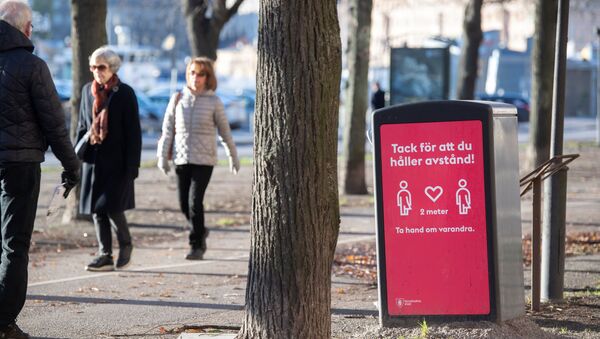The Swedish strategy against COVID-19, which places a lot of responsibility on the individual, paves the way for social conflicts, says Orla Vigsö, crisis communication researcher at the University of Gothenburg.
Accoding to Vigsö, a strategy that relies on recommendations and trust rather than bans and enforcement, is open to multiple interpretations and thus conflicts between people. And despite incessant calls from politicians and authorities to follow the recommendations, many testify that not everyone does.
"People get angry and frustrated that others fail to keep their distance. There will be some cracks in social cohesion, and that should have been foreseen. It is very difficult to make all the advice and recommendations match together", Vigsö told Swedish Radio.
For instance, shops are still open, while people are urged not to be out shopping. Although social distancing is advised to reduce the spread of infection, restaurants are still open, and eight people are allowed at the same table. Vigsö criticised the contradictory messaging, while stressing that getting vital messages to an entire population is an impossible task.
Vigsö also stressed a gap between observations and statistics.
"When [state epidemiologist] Anders Tegnell says that people follow recommendations, and at the same time you see with your own eyes how crowded it is in the town centre, it doesn't go toghether".
Since the start of the COVID-19 pandemic Sweden has been an outlier in steering clear of comprehensive lockdowns and instead relying on recommendations and citizens' participation, which has been dubbed "the Swedish model". Unlike many other countries, Sweden has not limited the movement of citizens and avoided obligations to wear face masks.
This strategy has so far proven to be a mixed blessing. While drawing a lot of criticism from medical professionals both inside Sweden and abroad for over-reliance on so-called "herd immunity" and allowing many excessive deaths (mostly among senior citizens and in nursing homes), the Swedish strategy has also been credited for bolstering the Swedish currency, avoiding mass unemployment, and keeping the economy running.
Sweden, a nation of over 10 million, has seen almost 209,000 cases and 6,500 deaths, with COVID-19 being the third-highest cause of death behind cancer and cardiovascular diseases.
Following the autumn spike, the Swedish government announced "unheard-of" restrictions, banning public gatherings of over eight people. Prime Ministe Stefan Löfven emphasised that the nation was "in a time of trial" and suggested that it takes more of a ban to bring down the curve of infections. Still, the number of daily infections reached a record level of 7,631 on 19 November.




